Algeria qualifies for the 2026 World Cup, Zidane father and son “each for their own”
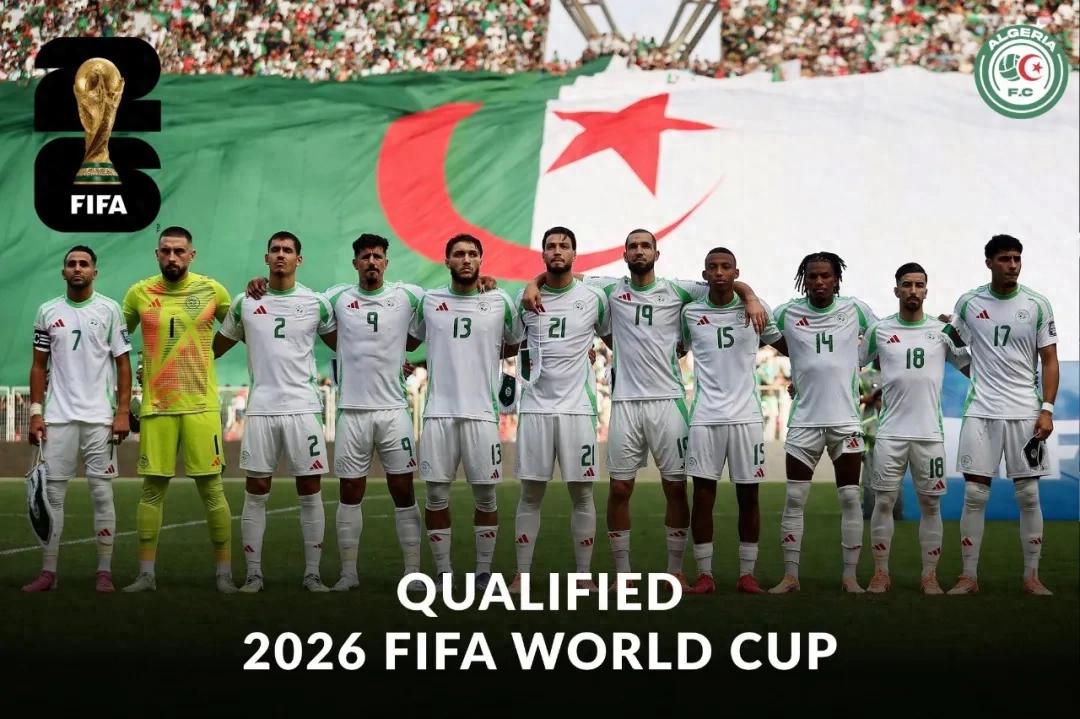
By Han Bing Following a 3-0 win against Somalia, Algeria clinched the group leader position a round early, becoming the 20th team to earn a spot in the 2026 World Cup. Among the notable figures in the Algerian squad is not only star player Mahrez but also goalkeeper Luca, who naturalized in mid-September — the second son of French legend Zidane. He and his father along with three brothers are embarking on football careers "each for their own," and the great Zidane name will bring Algeria additional worldwide attention.

Luca, 27, was born in France and is the second among four brothers. Like his older brother Enzo and younger brothers Theo and Elyaz, he came through Real Madrid’s youth academy. Both Luca, who chose to be a goalkeeper, and his brother Enzo were once overshadowed by their father — after Zidane became Real Madrid’s coach in 2016, he promoted both to the first team. However, compared to their father, the professional achievements of his four sons have been modest. Enzo never played for Real Madrid’s senior team and retired in September 2024 at just 29 to focus on investments and family life.
Luca’s career at Real Madrid was also brief, having appeared only twice for the team. During the 2017/18 season, he was the third-choice goalkeeper, and although he did not play in the Champions League, he still earned a winner’s medal. Afterwards, his career declined, and he mostly played in Spain’s second division. To fulfill his World Cup dream, Luca chose to naturalize as Algerian.
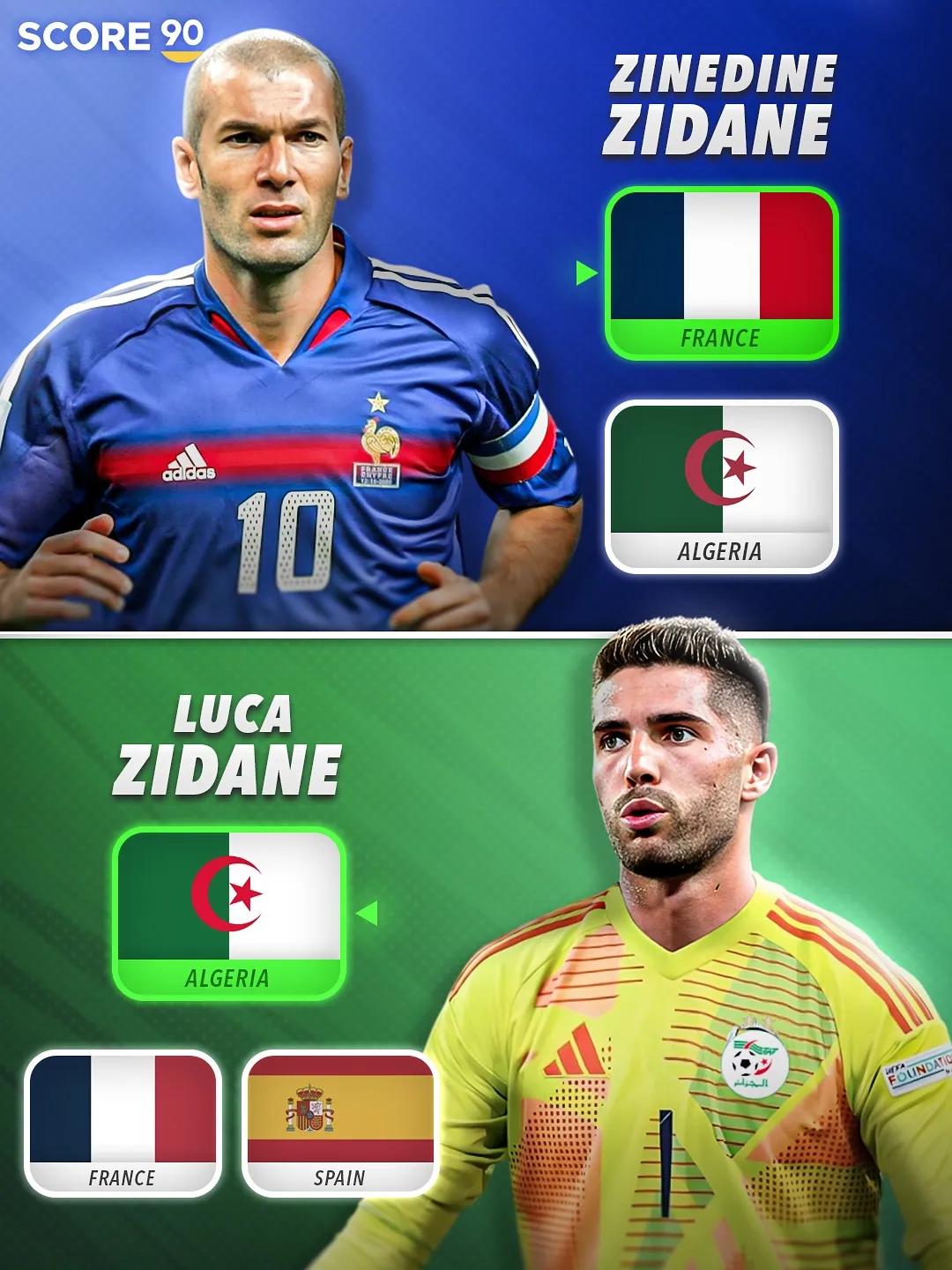
It is worth noting that Zidane, born in Marseille, has Algerian Berber roots, with ancestors from Kabylia in northern Algeria; Luca’s mother, Véronique Fernandez, is Spanish, which means Luca is eligible to represent France, Spain, or Algeria internationally.
In fact, Luca has a French football background — he was selected for all French national youth teams from U16 to U20 and won the 2015 U17 European Championship with the team, earning the best goalkeeper award. However, due to intense competition in France, he never got a senior call-up, and naturalizing for Algeria became his only path to achieving his World Cup dream.
To facilitate Luca’s naturalization, the Algerian Football Federation spared no effort. After receiving FIFA approval in mid-September, they immediately included him in the squad for the October World Cup qualifiers.
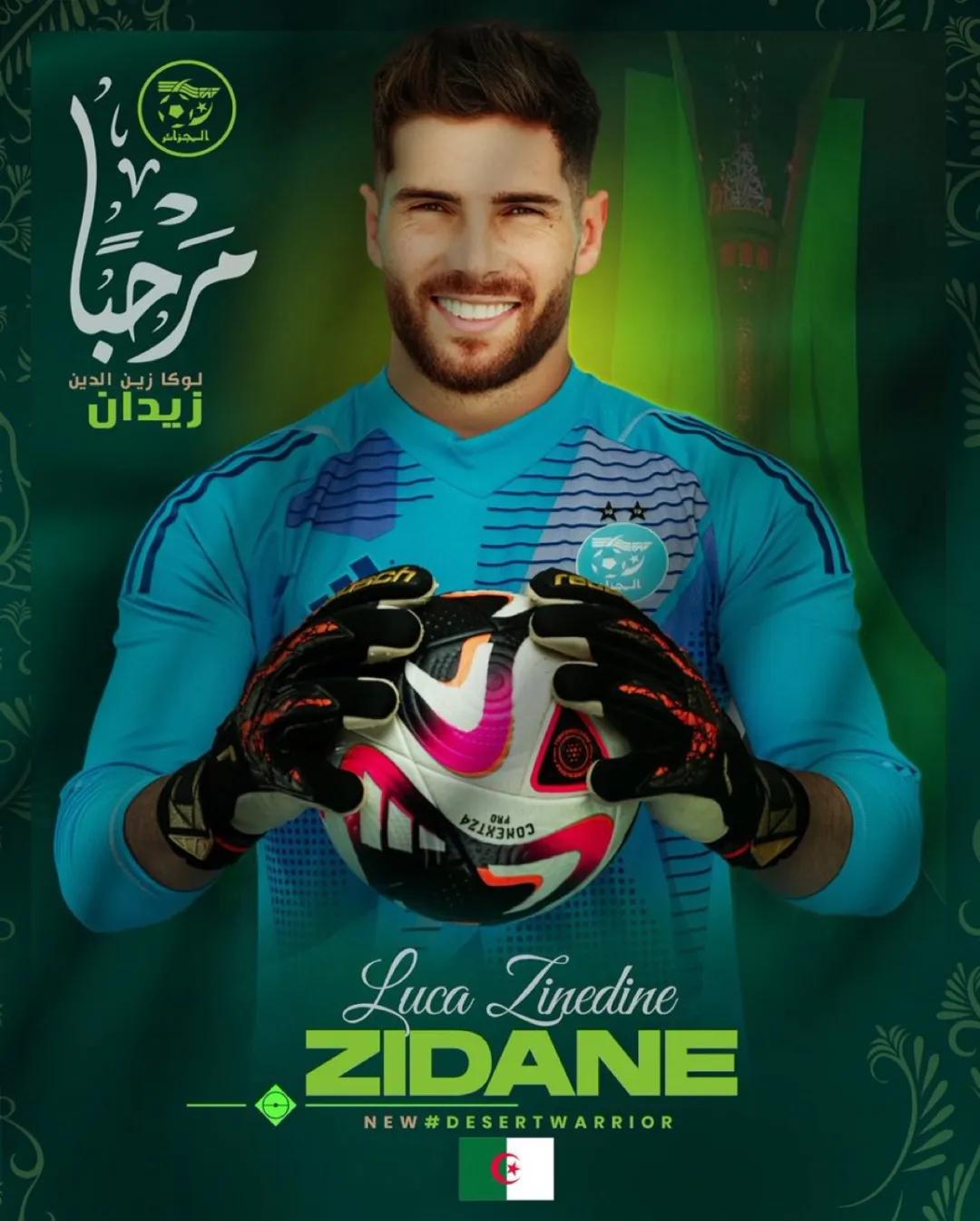

Renowned international sports consultant Butchner believes that Luca representing Algeria in next year’s World Cup holds special significance for the country and for Africa as a whole. It is extremely rare for the son of a European superstar to choose to play for an African nation in the World Cup.
The surname “Zidane” itself is a huge magnet — it will greatly boost Algeria’s visibility in global media and public opinion, along with substantial commercial benefits. From jersey sales to sponsorship deals, Luca’s addition is expected to bring a series of business opportunities to Algeria.
If Algeria and France end up in the same group at next year’s World Cup, the storyline of the Zidane father and sons representing different teams will itself be a major highlight.
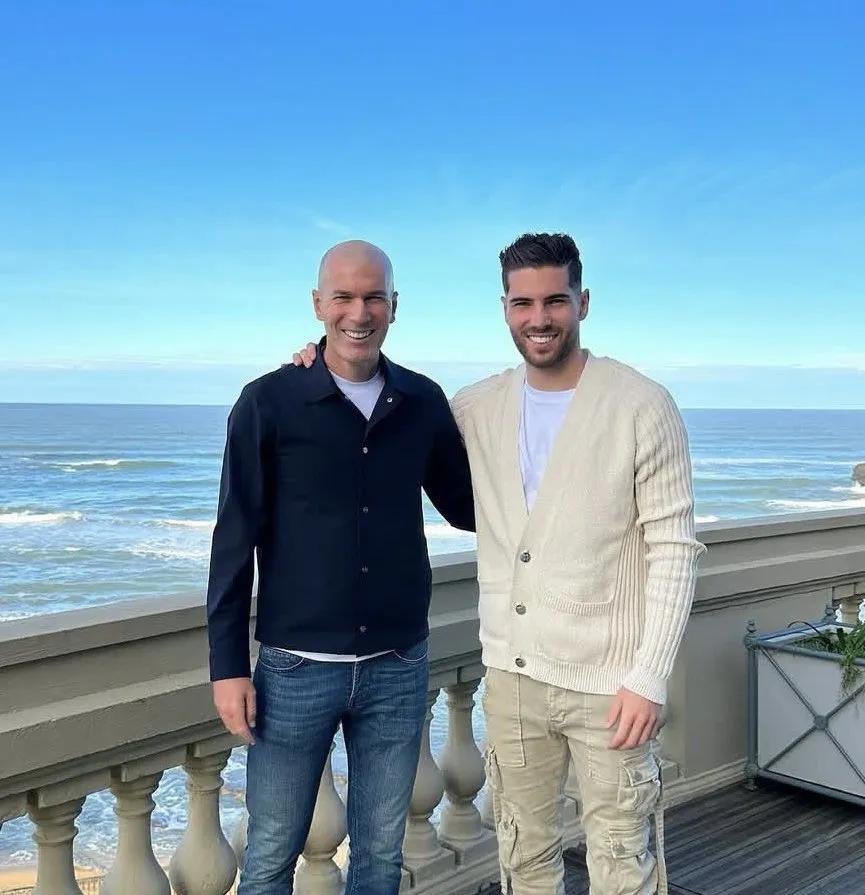

In the past, there have been many cases of father and sons or brothers playing for different national teams.
In the 1994 Brazil World Cup-winning squad, Mazinho’s eldest son, Thiago, joined La Masia at 14 and played for Barcelona, Bayern, and Liverpool, choosing to represent Spain internationally; similarly, his younger brother Rafinha, also from La Masia, initially played for Spanish youth teams but switched to Brazil in 2013 and won the Olympic gold medal in men’s football at Rio.
There are many similar examples in Brazilian football: free-kick specialist Assunção, who played for Roma, has a son, Sena, who naturalized for Spain; Dani Alves’ two sons, Geraldo and Bruno, both became Portuguese internationals. George Weah, the first non-European Ballon d’Or winner, has sons George and Timothy, both trained at PSG’s academy and chose to represent the United States, with Timothy already a senior US international.
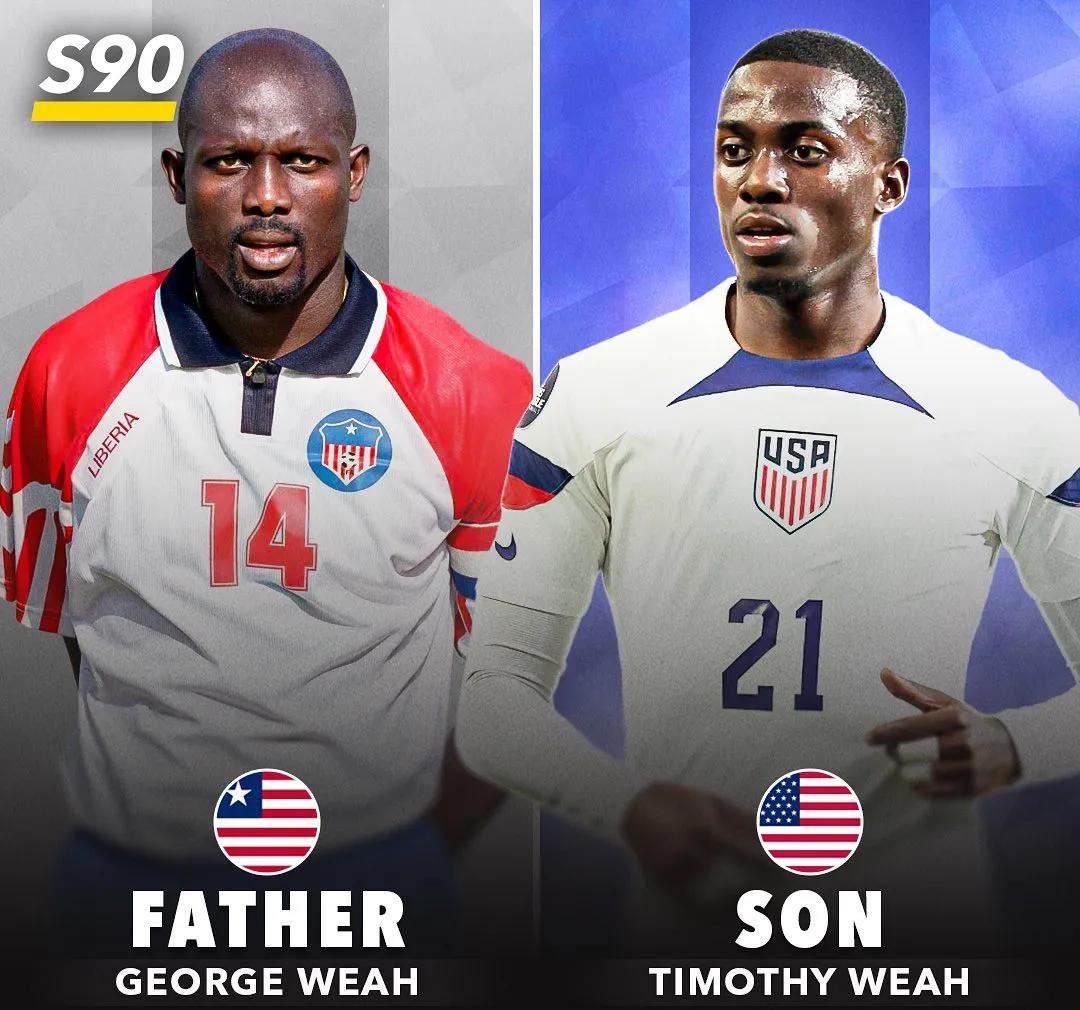
Italy’s goalkeeper Buffon’s son Luis plays as a winger and will turn 18 at the end of 2024. Although raised in Turin, he chose to represent the Czech Republic U18 team this March due to his mother being Czech model Seledova. Jonathan, son of German legend Klinsmann, is also a goalkeeper and was born in Germany but opted to play for the US youth teams.
Besides these, football has many examples of multinational “father-son legacies”: German international Sané, who played for Manchester City and Bayern, has a father, Souleymane, who was a Senegalese international; Belgian international Lukaku of Napoli has a father, Roger, who played for Zaire (now the Democratic Republic of Congo); and the most unusual case is Kvaratskhelia, who recently won the treble with PSG — his father Badri was born in Georgia but played three times for neighboring Azerbaijan, including once against Georgia.
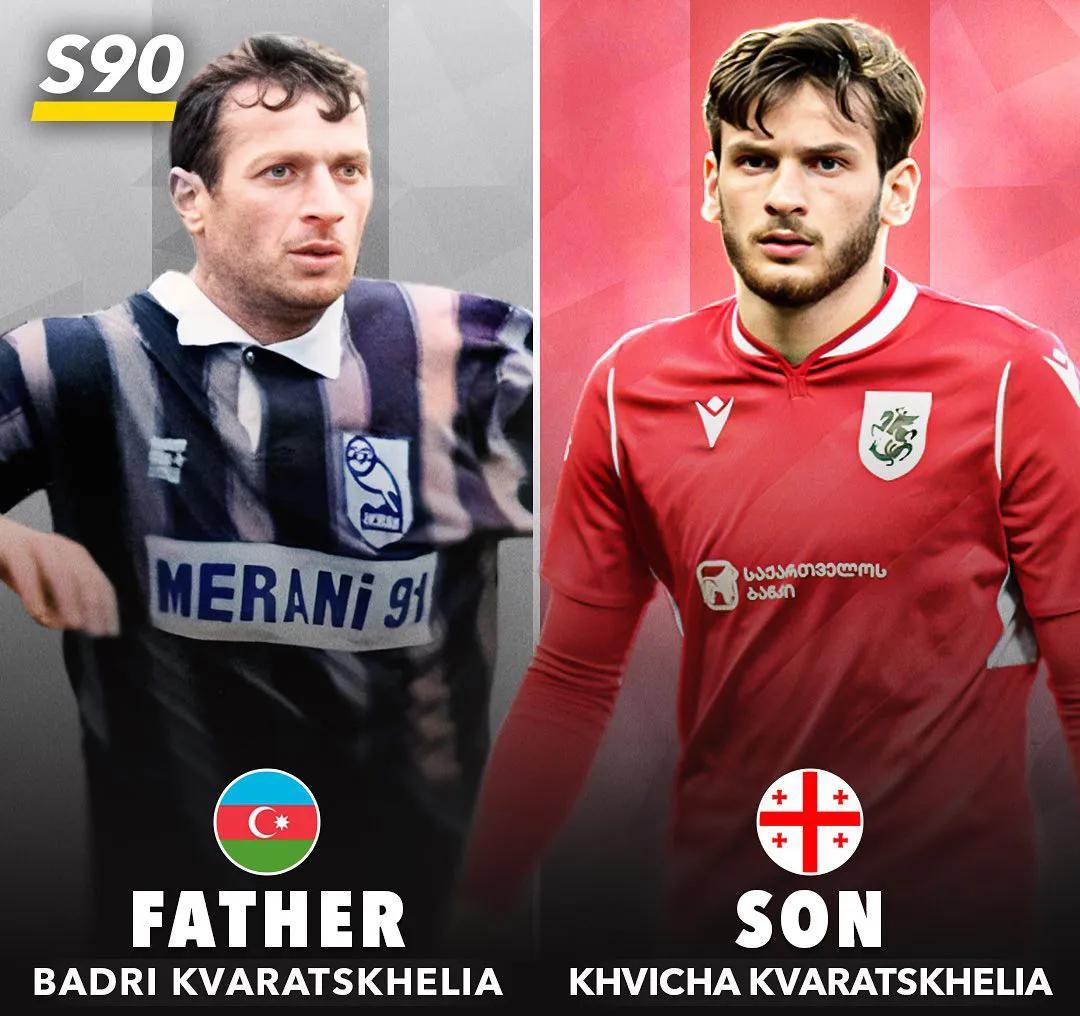


Wonderfulshortvideo
🥶🥶


The Nuno Mendes x Cristiano Ronaldo link-up 😮💨🔗


Harry Kane is the BEST striker Thomas Tuchel has EVER worked with 👀🏴


User esportapi has posted a video.


Marcus Rashford pays tribute to Cristiano Ronaldo 👏


Cristiano Ronaldo is the


User FieldFrenzy has posted a video.








 Links
Links
 Contact
Contact
 App
App


